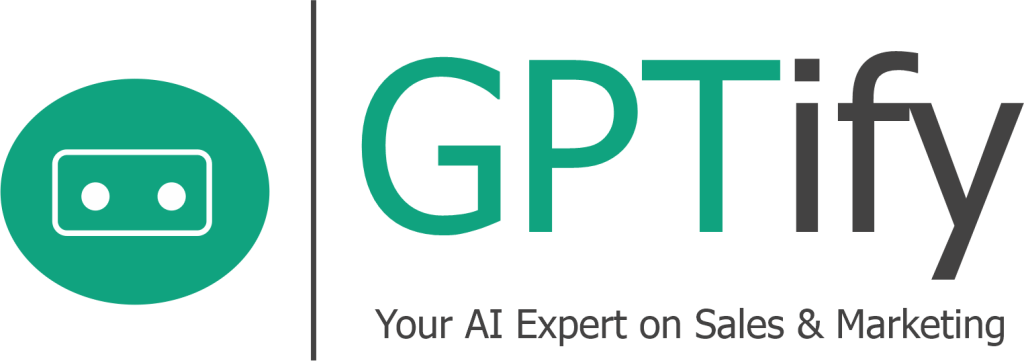Imagine a sales team that not only responds to leads instantly but also personalizes every interaction and closes deals with record-breaking efficiency. This isn’t a glimpse into the distant future—it’s the reality today, thanks to artificial intelligence (AI).
According to recent data, 79% of business leaders agree AI is necessary to stay competitive, but many struggle with quantifying its ROI. Yet, as AI’s potential continues to fuel excitement, the true challenge lies in moving from the hype to real, ethical, and sustainable implementation. The rapid adoption of AI at work has transformed the way sales teams operate.
Understanding the Hidden Costs of AI in Sales
AI tools promise tremendous efficiency gains, but organizations must also be mindful of the hidden costs. A survey by Deloitte found that 53% of companies faced higher-than-expected expenses after deploying AI. These costs often stem from data management, system maintenance, and employee training.
Despite these concerns, the demand for AI in the workplace has surged, with 75% of global knowledge workers using AI at work, and 90% reporting that AI helps them save time. This rapid adoption is a clear signal that AI is moving from experimentation to everyday integration in sales, but businesses need a comprehensive strategy to ensure long-term success.
Key Strategies to Manage AI Costs:
- Conduct a Thorough Cost-Benefit Analysis:
Before adopting AI, evaluate the potential ROI against the total cost of ownership, factoring in hidden expenses such as ongoing maintenance, data storage, and staff training.
- Start Small with Pilot Projects:
Begin with targeted use cases like lead scoring or email automation to gauge effectiveness without a large upfront investment.
- Opt for Scalable Solutions:
Choose cloud-based AI platforms that grow alongside your business needs, allowing you to pay only for what you use.
- Plan for Continuous Investment:
Ongoing costs, such as software updates and system maintenance, are inevitable. Additionally, allocate resources for regular training sessions to keep your team up to speed with evolving AI tools.
10 Ways Your Team Can Use AI in Sales
Advanced Data Enrichment and Analysis
In today’s sales environment, data enrichment—integrating data from external sources into your CRM—has become essential. AI-powered tools can analyze this data to create a more complete and accurate understanding of prospects, customers, and sales processes. These insights enable better lead scoring, prioritization, and personalized outreach, helping your team engage more effectively.
Enhanced Lead Qualification
AI can help your team qualify leads more accurately by analyzing vast amounts of data to identify the most promising prospects. By automating this process, AI ensures that your sales reps focus their efforts on leads with the highest potential, improving conversion rates and maximizing efficiency.
AI-Driven Conversation Intelligence
Conversation intelligence tools use AI to analyze sales calls and extract valuable insights, such as trends, objections, and key moments. These insights allow your team to identify areas for improvement and enhance their sales strategies, leading to better performance in future interactions.
Improved Pipeline Management and Forecasting
Sales forecasting is critical but often challenging. AI can reduce errors in forecasting by analyzing historical and real-time data to predict outcomes more accurately. AI-driven tools provide insights into deal probabilities, scenario forecasts, and potential challenges, enabling your team to make informed decisions and manage the pipeline more effectively.
Streamlined Sales Engagement
Sales engagement involves all interactions between buyers and sellers. AI can streamline this process by helping your team understand customer needs more deeply and automate personalized outreach. AI tools can tailor messages to individual customers, optimize engagement strategies, and adjust campaigns based on real-time feedback.
Personalized Sales Pitches
Generative AI enables the creation of highly personalized sales pitches by analyzing customer data to predict needs and preferences. This allows your team to offer tailored solutions that resonate with potential clients, increasing engagement and positioning your sales reps as attentive and proactive.
Optimized Email Outreach
AI can enhance email outreach by personalizing content based on customer behavior and preferences. AI-driven tools can craft tailored email messages that address the specific needs of each lead, increasing the likelihood of engagement and improving conversion rates. This saves time and boosts the effectiveness of your email campaigns.
Refining Sales Scripts
Generative AI can be a valuable resource for developing and refining sales scripts. By using AI to iterate on a basic script based on real-time feedback, your team can continuously improve their approach. AI-enhanced scripts ensure that your sales pitches remain sharp, relevant, and effective, helping your team close more deals.
Enhanced Customer Insights
AI can analyze customer interactions across multiple channels to provide deeper insights into their preferences, behaviors, and pain points. These insights help sales teams better understand their customers, allowing for more targeted and effective sales strategies. By leveraging AI, your team can anticipate customer needs and tailor their approach accordingly.
Automating Administrative Tasks
AI can significantly reduce the administrative burden on sales teams by automating routine tasks such as data entry, scheduling follow-ups, and generating reports. This frees up valuable time for sales reps to focus on high-impact activities like closing deals and building relationships. Automation not only improves efficiency but also reduces the risk of human error in these tasks.
Ethical AI: Augmenting, Not Replacing, Your Sales Team
One of the primary concerns with AI is job displacement, but AI is intended to complement sales professionals, not replace them. In fact, 72% of sales leaders in a Salesforce study indicated that AI is crucial for navigating unforeseen challenges, while 68% of sales professionals believe AI enhances their effectiveness.
Best Practices for Ethical AI Implementation:
- Invest in Employee Training:
Organize workshops, seminars, and online courses that familiarize your sales team with AI tools. Give them time to practice and master these systems.
- Involve Sales Teams in AI Selection:
Engage your sales staff in the decision-making process for choosing AI tools. Their input ensures that the tools meet real-world needs and boost productivity.
- Maintain the Human Touch:
Balance automation with personalization. While AI can handle repetitive tasks, let your salespeople focus on relationship-building. Always review AI-generated communications to ensure they resonate with your brand’s voice.
- Establish Ethical Guidelines:
Develop a clear AI ethics policy that promotes fairness and transparency. Make sure all employees understand and follow these guidelines, especially when it comes to data privacy.
Conclusion: Practical Steps for Sustainable AI Integration
To realize a solid return on investment from AI, companies must take practical steps while also addressing ethical considerations. 60% of business leaders worry that their organization lacks a clear plan for AI adoption, which underscores the need for strategic implementation.
- Identify High-Impact Areas:
Evaluate your sales processes and identify tasks that can benefit from AI-powered solutions. Start with areas offering immediate results.
- Measure and Adjust:
Continuously monitor performance and be prepared to adapt based on data insights.
- Foster a Collaborative Culture:
Encourage your team to view AI as a partner, not a competitor. Promote continuous learning and an innovative mindset to maximize the benefits of AI tools.
Start by auditing your sales process to identify areas ripe for AI-driven automation. Engage your team in selecting solutions that align with your goals and consider launching a pilot program to assess effectiveness. Remember, the goal is to empower your salesforce, driving sustainable growth through ethical and practical AI adoption.
Need Help Implementing Generative AI Solutions?
Cubeo AI is here to simplify the adoption of generative AI for your sales team. Our no-code platform allows you to create custom AI Agents and Assistants specifically tailored to your business needs—no programming expertise required. Whether you’re looking to enhance content creation, automate routine tasks, or seamlessly integrate AI into your existing systems, Cubeo AI has the tools you need.
Sign up here to start exploring our platform, and schedule an onboarding call with one of our founders who can provide tailored advice for your specific needs. We’re excited to see what your team can achieve with Cubeo AI!
Related reading:



